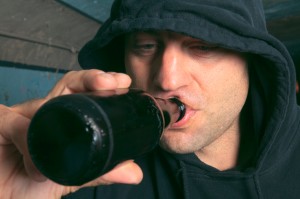Alcohol and Memory
Everyone knows that alcohol has a profound effect on memory. It’s no big secret that after a night of partying your memories can be a little hazy. But what is the connection between alcohol and memory? How does alcohol affect your ability to remember?
Alcohol and Memory: How alcohol affects the memory
Alcohol primarily interferes with the ability to form new long-term memories. Memory formation and storage take place in several stages, proceeding from sensory memory (which lasts up to a few seconds) to short–term memory (which lasts from seconds to minutes depending upon whether the information is rehearsed) to long–term storage. When someone attends to sensory information, it is transferred from a sensory memory store to short–term memory. The transfer from short-term memory to long term memory depends on many different factors including rehearsal, depth of processing attention, motivation, and arousal. Alcohol impairs the transfer of information from short term memory to long term memory.
Alcohol and Memory: Blackouts
One of the more extreme effects of alcohol on memory can be seen in blackouts. These are periods of alcohol-related amnesia. Most people experience one of two types of blackouts-en bloc blackouts and fragmentary blackouts. En bloc blackouts happen when you are unable to recall anything from the blackout period, even when your memory is prompted. Fragmentary blackouts are classified as being able to remember certain things during the blackout period, but having gaps in your memory. Fragmentary blackouts seem to occur with lower blood alcohol content then en bloc blackouts. Sometimes, when prompted, a person can remember certain things that happened during a fragmentary blackout.
The important thing to remember about blackouts is that they are not the same as “passing out” or losing consciousness. Blackouts are periods of time when the drinker is completely conscious, having conversations and performing sometimes amazing feats, but later they have absolutely no memory of the events that transpired. Total amount of alcohol ingested does not seem to be the determining factor when people blackout. Whether or not a person will blackout seems to depend on how quickly they consume the alcohol. Surveys suggest that a person can drink the same amount or more alcohol as he or she did when the blackout occurred and not experience memory loss, provided they drink the alcohol over a longer period of time.
Enough alcohol will prevent the brain from recording new memories. These periods of amnesia are primarily “anterograde,” meaning that alcohol impairs the ability to form new memories while the person is intoxicated, but does not typically erase memories formed before intoxication. During the blackout, the brain is not recording anything going on, which is why you are unable to recall it later. Alcohol affects the hippocampus area of the brain, which is involved in memory storage.
Though repeated episodes of blacking out will lead to permanent changes in the brain, blackouts are more psychosocially damaging than physically damaging. Many people report engaging in high-risk behavior during a blackout. They drive while intoxicated, get into fights, or engage in unprotected sex. During a blackout, normal restraint of emotions, impulses, and desires is impaired and that may result in enormous harm to self and others.
http://pubs.niaaa.nih.gov/publications/arh27-2/186-196.htm
http://www.livescience.com/14952-alcohol-blackouts.html





